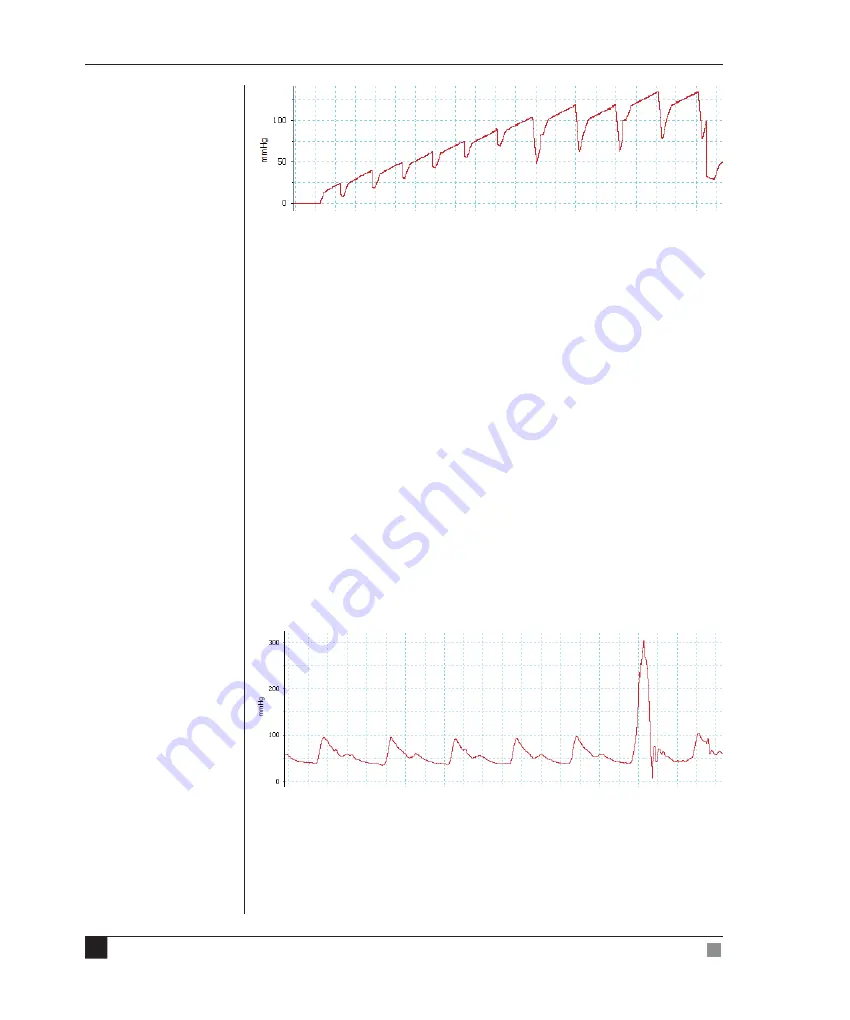
50
Human NIBP Nano
Owner’s Guide
These ‘special’ AutoCals are performed aft er a period in which the soft ware
was unable to recognize heart beats, such as during movement artifacts
or in situations where there is no finger arterial pressure change during
a heart beat, as is the case during certain phases of open heart surgery.
During a special AutoCal an inverted pressure waveform is superimposed
on the constant levels. The resulting plethysmogram is used as if the finger
arterial pressure was varying and not the cuff pressure.
Occurrence of oscillations
The Human NIBP Nano uses a servo system to make cuff pressure
follow intra-arterial finger pressure. Servo-systems in general, and the
rather complex one needed in Human NIBP Nano Interface in particular,
may show oscillations occasionally. Two types of oscillation can be
distinguished, the low on/off or ‘railing’ type and the high frequency
sinusoidal type. The presence of oscillations of either type is detected by
the device and appropriate measures are taken when possible.
In the case of a railing-type oscillation, pressure may be switching from
almost zero to almost full cuff pressure. If this occurs the servo setpoint
and the loop gain are automatically reduced until railing stops. However, a
correct measurement is no longer guaranteed until aft er the next AutoCal.
Railing, if it occurs more than just occasionally in a measurement, is
almost always a sign of a cuff wrapped too loosely or a cuff too wide for
the finger. Stop the measurement, rewrap the finger cuff , possibly on a
diff erent finger and then restart.
Figure A–7
Special AutoCal with
variable pressure levels.
Figure A–8
Example of fi nger
pressure changes during
a ‘railing’-type oscillation
of the servo system.
















































